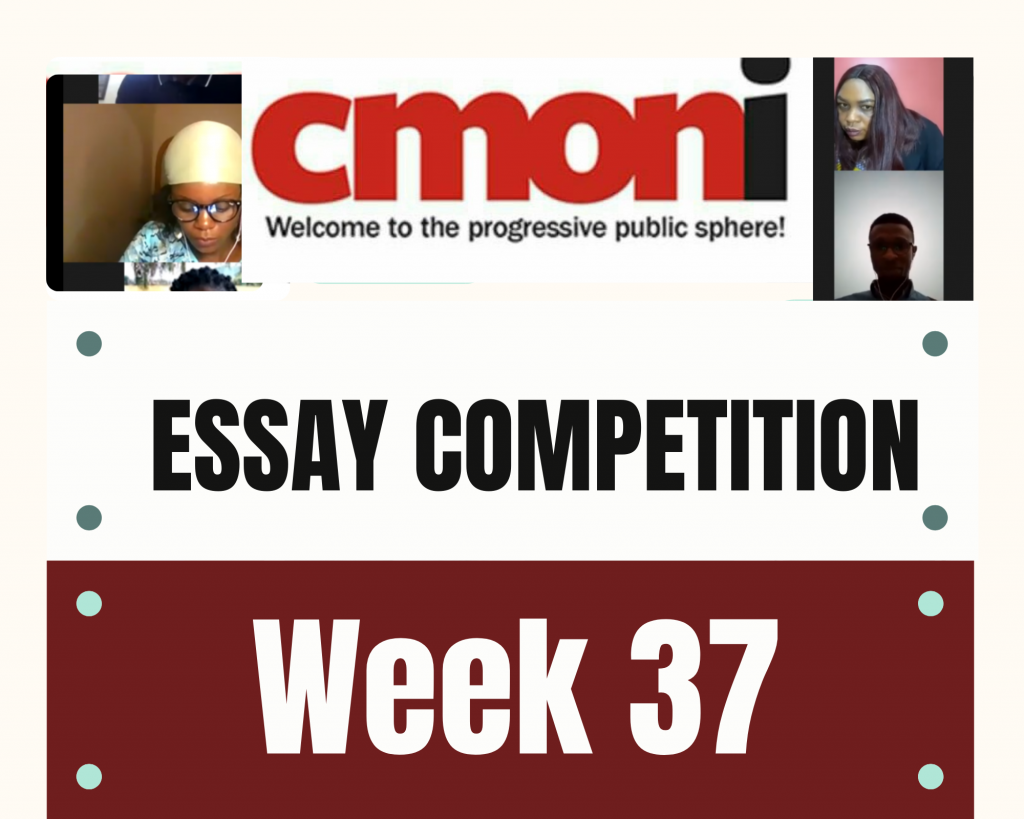On the 28th of July, this year, the President of Nigeria, Muhammadu Buhari promised to increase the budgetary allocation towards education by 50% over the next two years. He made this statement while speaking at the Global Education Summit on Financing Global Partnership for Education (GPE) 2021–2025 in the United Kingdom. This conference was co-hosted by the Prime Minister of the UK, Boris Johnson, and the President of Kenya, Uhuru Kenyatta. This declaration was contained in a document,”Heads of State Call to Action On Education Financing Ahead of The Global Education Summit”, signed as a form of commitment during the conference. Though laudible, Buhari’s promise came as a shock however, considering the fact that, about two months ago, President Muhammadu Buhari hinted that the Federal government was unable to fund the revival of the country’s education system. Many say such plan is not feasible. Others say that amount of increase might not be enough to revitalize the rotting educational system. In fact, many believe that it was a political stunt pulled by His Excellency to gain credibility among the other Heads of State. Whether or not the decision is heartfelt does not rule out how important funding the educational sector is. In fact, increased funding of the educational sector could be the key to Nigeria’s acceleration in a progressive direction.
The educational sector of Nigeria has been a troubled sector for years. While funding alone is not the answer to all of its ills, funding remains the biggest problem confronting Nigeria’s education system, preventing it from reaching full potential. The percentage allocation for education has reduced from 13% in 2008 to 5.6% in 2021. While the real amount of money increased, the percentage with respect to the total budget seem to just continue to decline. The 2021 budget is 26% higher than the last year’s budget, but the cut of the budget intended for health and education decreased.To put the difference in perspective, the benchmark by UNESCO for a developing country is that the country directs about 26% of its annual budget towards: at least 20% of public expenditure and 6% of GDP. Since Nigeria generates a fairly large GDP–the largest in Africa–such requirements should be attainable, but that is not the case.
Our educational system of 6–3–3–4 (6 years of primary school, 3 years of junior secondary school, 3 years of senior secondary school, and at least 4 years of tertiary education) seems to work well in China, Germany and Ghana. However we see that many Nigerians never make it past secondary school. Unfortunately, Nigeria ranks worst in terms of out of school children; 1 out of 5 out-of-school children globally is from Nigeria. Even though Universal Basic Education (UBE) takes a large portion of the budget–leaving tertiary education with a very low cut–primary education still suffers the most from lack of financial resources. The constant struggle of the Academic Staff Union of Universities (ASUU) with the government is obviously linked to lack of funding. 40.1% of Nigerians are classified as poor by national standards, and the median age of Nigerian citizens is 17.9, according to the National Bureau of Statistics. Despite this, Nigeria’s investment in education does not match its ambitions in fighting poverty for a developing nation as David Hundeyin, an award winning journalist points out. The president’s intention is commendable. However, it is important to note that while such plan is progressive, it is still less than the amount needed to meet the UNESCO benchmark. An addition of 50% to the 5.6% for 2021 sums up to about 8.4%. Moreover, the present government is known for its frequent and almost consistent inability to adhere and fulfill its promises to the Nigerian populace. This means that, even though a document was signed to that respect, the Nigerian government does not score high on the trust chart.
As small as the percentage is, major possibilities and benefits can be drawn from the initiative. One crucial benefit of such increase in funding is an increase in social mobility. Over the past 60 years, education has been the single greatest mover of Nigerians from poverty into the middle and upper class, serving as a tool to lift millions. With better funding in education comes more exposure. Exposure then makes students and graduates ready and available to seize opportunities around them. It ensures better quality of life also. In America, for instance, students exposed to spending increase had 7% higher wages as adults and 3% point lower risk of adult poverty. Also, it would help to get rid of the educational divide between the rich and the poor. Many middle class and high class citizens can access good educational facilities. By improving the funds, students of low-income families benefit the most. So the difference in access to good education becomes less steep. It also raises graduation rates, which is very good, since millions of Nigerians are half educated.
Education is fundamental to human capital development. Over 60 million Nigerians are illiterate, and this greatly affects the amount of professionals in the country. Human capital development is the precursor to developing the knowledge economy and innovation needed to drive the country’s industrial transformation agenda. So more investment in education would lead to higher rate of production of a professional workforce. More funding by the government means that tertiary institutions can afford to promote research work. Research can be very expensive, and so it is virtually impossible without the right resources. Since science and technology have always relied on research, a breakout of innovation in the country would be eminent. This would in turn improve the reputation of our higher institutions. It could even help build young scientists in secondary and primary schools, which would change the Nigerian scientific community forever.
Increased funding leads to better quality of education. This is the most important benefit of increased funding, because it has a ripple effect. More money, if well spent, would lower student-to-teacher ratios, and increase the salaries of teachers. Also, it would allow schools attract and retain more qualified instructors. It would improve learning outcomes of students through vibrant educational institutions. It would also promote greater adoption of technology in Nigerian education, thereby encouraging innovation and creativity. Access to financial resources therefore equates more schools, many classrooms, sufficient, well paid and well trained teachers, quality textbooks and consequently sufficient attention and effort by the students. These plans would greatly help basic education, as domestic funding is the greatest financial contributor to primary education. It would also regularize the duration of tertiary education, since it cuts back on the need for strike actions by tertiary institution unions.
From an economic standpoint, an increase in educational funding gives an 100% return on investment. The more educated the populace, the more innovative it is. Hence more successful establishments can be built, and this would greatly improve the Gross Domestic Product (GDP) of the country. Also, since education influences social mobility and class, an improvement in funding could increase the amount of middle and upper class Nigerians. This would in turn earn them bigger wages. Hence, an increase in funding, in the long run, would help more people move up the tax bracket, and thus increase the tax revenue the government makes.
Many factors pose a resistance to this progressive gesture. Before the increase in funding can have visible effect, issues of generation and management of funds need to be addressed. The chief factor being that the government spends too much because of the consistent expansion in the size and cost of government over the decades. A consequence of this is that the government is borrowing money just to keep federal and state civil services running. Evidence of this can be seen in the national budget. Most of the budget is targeted at debt servicing and wage expanses, leaving only little for capital investment. For example, 83% of the education budget is geared towards recurrent expenditure, including payment of salaries and personnel and overhead costs. This leaves only 17% for capital expenditure for all the branches of education. A very unpopular solution, which is inevitable is embarking on an aggressive but pragmatic drive to significantly trim the cost of governance, even in the educational sector itself. This is frowned at because it would lead to the loss of jobs for a relatively few people. However, it is important to note that the government was not designed or intended to be a job creation scheme. If the government can become lean and productive, enough money can be saved for investments in important sectors like education. The government should not be based on quantity, but on the quality and efficiency of governance.
The fact that the educational sector has been left in a bad state for decades to rot due to compounding effect of negligence can also prevent this change in budget from having significant impact. In fact, as far back as 1977 (as stated in The Journal of Negro Education), Nigeria already had the problem of inefficient utilization of the resources of higher education. This latent and addressed decay stands to prevent advancement; a skyscraper cannot be built on a compromised foundation, if it is going to last long. Any money generated would have to be used to first heal, and revitalize the sector before any progression can occur. Another factor is corruption: both national and within the ministry of education itself. An increase in the budget, if not well monitored, would just increase the amount that can be stolen by corrupt official. For example, the Tertiary Education Trust Fund (TETFUND) had to be suspended because it was being squandered by the governing bodies of tertiary institutions. For years, the EFCC has invited many university officials for questioning because of the amount of money that disappeared into thin air. Moreover, the neglect of the educational system might not have been as a result of insufficient funding, but as a result of deviation of the little funds from crucial, sustaining projects to the pockets of selfish people. Therefore, the accountability of all stakeholders is necessary for change.
Another important factor that could impede these projected action is the current priorities of the country. Many other sectors, which may be more important than education in the short term, are also badly funded. Examples include the security, defense and health sectors. So, there are other competing demands for the scarce resources available in the country. The effects of the COVID-19 pandemic on the healthcare sector, and the terrorist insurgency and insecurity on the concerned sectors are still felt throughout the country. Since education is not a direct contributor to the revenue generated by the country, investing in education might strain the nation. To further worsen the matter, Nigeria’s debt profile is 33.1 trillion naira. Pulling up more funds for education, after the global economic downturn as a result of the pandemic may be almost speculative. A possible solution would be to reprioritize. By placing education high on the priority list, excess funds or non-maintenance resources in low priority sectors can be siphoned to assist capital investments like building of schools. Also, internally generated revenue from schools and private sector contributions would help the schools. For example, the Ghanian Education Trust Fund (GETFUND) is supported with 2.5% of all Value Added Tax (VAT) revenues generated in Ghana yearly. Nigeria’s VAT revenue for 2020 was 1.53 trillion naira; if we also do the same, more than 38 billion naira would be made available for the sector.
Wasteful expenditure in the educational sector, if not curtailed, will ruin any effort that the government makes towards better funding. Many expenses and expenditures within the ministry of education are unnecessary. An example can be seen in popular the school feeding programme introduced by the president. Of the 220 billion naira that was used for the programme in 2019, 50 billion naira was wasted. Imagine how much change that amount would have caused in the primary and secondary schools in the north, for instance. It is therefore important to be prudent with this extra funding, or else it would be wasted. Qualified educationists, economists and financial experts are needed to make sure these funds, when and if they eventually come, are managed with scrutiny.
In conclusion, it is important to realize the reasons why the education of our generation warrants more investment. Malcolm X once said, “Education is the passport to the future, for tomorrow belongs to those who prepare for it”. Our future as a country is largely tied to our much we are willing to do to improve education in our country. The more resources, as well as attention, we give to the education of the children and youths can determine if Nigeria fails as a country in the new decade; unable to present its acclaimed leaders of tommorow to the global front. Personally, I feel it all comes down to how intentional the government is about the sustainability of the sector. Hence, with the prospects and benefits in view, ways of improving the education of the young should be tested and tried, in order to single out important corrections that need to be made, as well as novel implementations that would serve the intended purposes for the sector. There is a void that needs to be filled, but it is also important to address the pre-existing shortcomings of the Nigerian educational sector, and as important future stakeholders, students can collaborate with the government, and make use of the opportunities that would be made available to achieve heights in their individual careers. With the right strategies, the possibilities are almost endless.
Oluremi Daniel Ayanfeoluwa from Abeokuta in Ogun state is a young student, a classical musician in training, a Christian and a science enthusiast. He also loves dogs, fashion, photography and intellectual stuff. Hr can be reached via dabrainbox2@gmail.com








